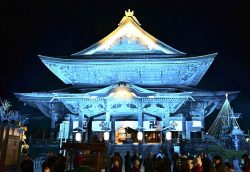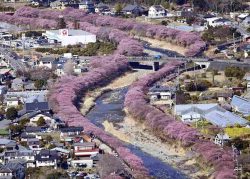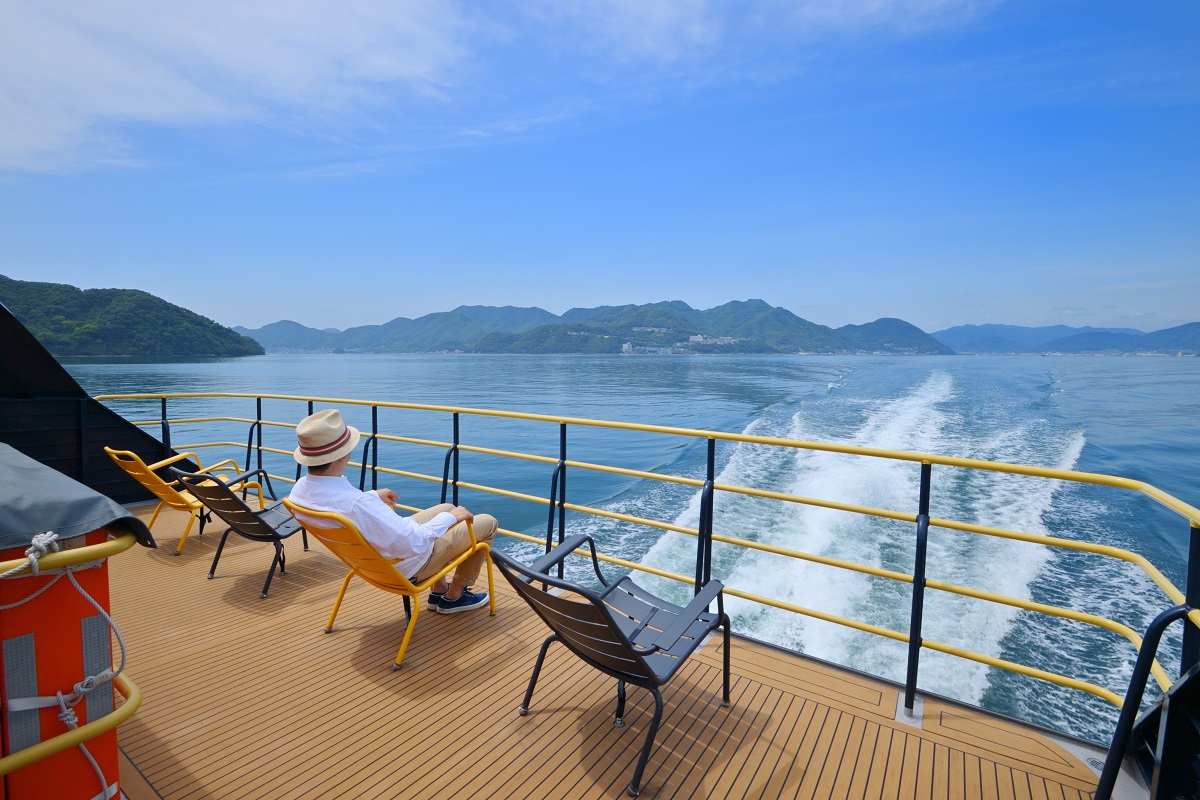
A passenger on the second-floor deck looks on as whitecaps are made by the high-speed Sea Spica.

14:00 JST, July 22, 2023
HIROSHIMA — There are many ways to get about and enjoy the Seto Inland Sea, but the Sea Spica, a high-speed sightseeing boat, lets guests island hop in comfort and style.
Unlike conventional sightseeing boats, the Sea Spica has an elegant hull design, and takes people on a special tour of scenic spots that takes about 4 hours and 30 minutes.
The Seto Inland Sea, the largest of its kind in Japan, lies between Honshu and Shikoku and contains many islands. The major ones connect by bridges while some remote islands are only accessible by boat.
The round trip between Mihara and Hiroshima ports in Hiroshima Prefecture goes along the Setouchi Shimatabi Line, a new sightseeing route that features highlights of the area.
The short sightseeing cruise’s eastbound route departs Hiroshima Port in the morning, while the westbound route leaves Mihara Port in the afternoon.
I recently enjoyed a one-day cruise aboard the Sea Spica and chose the westbound route that includes a visit to the Mitarai district of Osaki-Shimojima Island, where a historic townscape remains.
Both tours allow passengers to enjoy multiple stops with a variety of features and attractions, such as Okunoshima Island, widely known as “rabbit island,” and Kure Port, which retains the vestiges of its military past.
Visiting ‘rabbit island’
A little before the Sea Spica’s departure at 1:25 p.m., the stylish sightseeing boat entered Mihara Port, its body’s navy and white colors cut through with gold lines. The boat is a catamaran, meaning it has two hulls of equal size. Each hull is thin for speed, but the two are connected in parallel to provide stability.

A passenger feeds a rabbit on Okunoshima Island.
The deck is optimally sized, with the first-floor seating area sporting a high ceiling and large display screens. The second-floor area is furnished with sofas and benches so passengers can sit comfortably.
The sightseeing boat is fast and comfortable though relatively small, measuring 25.7 meters in length and weighing 90 tons with a passenger capacity of 90.
After leaving port, it picked up speed as we passed the end of the pier.
“Take care that your hat doesn’t blow off,” said a crew member as I made my way up to the deck. The sea breeze was indeed strong, though it eased the mid-day heat.
The boat headed south and the passengers enjoyed the tranquil island scenery to the left, with houses and factories along the coast of Mihara on the right. We soon entered the Setoda Channel, located between Ikuchi Island and Kone Island.
After passing under Kone Bridge, the Sea Spica stopped at the small Setoda Port. From here, the coast was close, and I could see old houses, temples, shrines and anglers sitting along the embankment. Most likely because I was a traveler, I felt that the everyday scenery of the island was somewhat unreal. It all came into my view momentarily, made an impression on my heart and then just as quickly vanished.
Okunoshima Island was next on our itinerary and passengers got to explore the famous rabbit island for 30 minutes, with some feeding the furry animals. Several hundred rabbits are said to inhabit the area.
Yukiko Matsumoto, our onboard guide, explained its history. The place was once called “the island that was erased from the map” as it housed a poison gas factory during World War II.
“Passengers can enjoy meeting friendly locals here,” she added. “People from other islands sometimes set up booths to sell tangerines and other specialty products.”
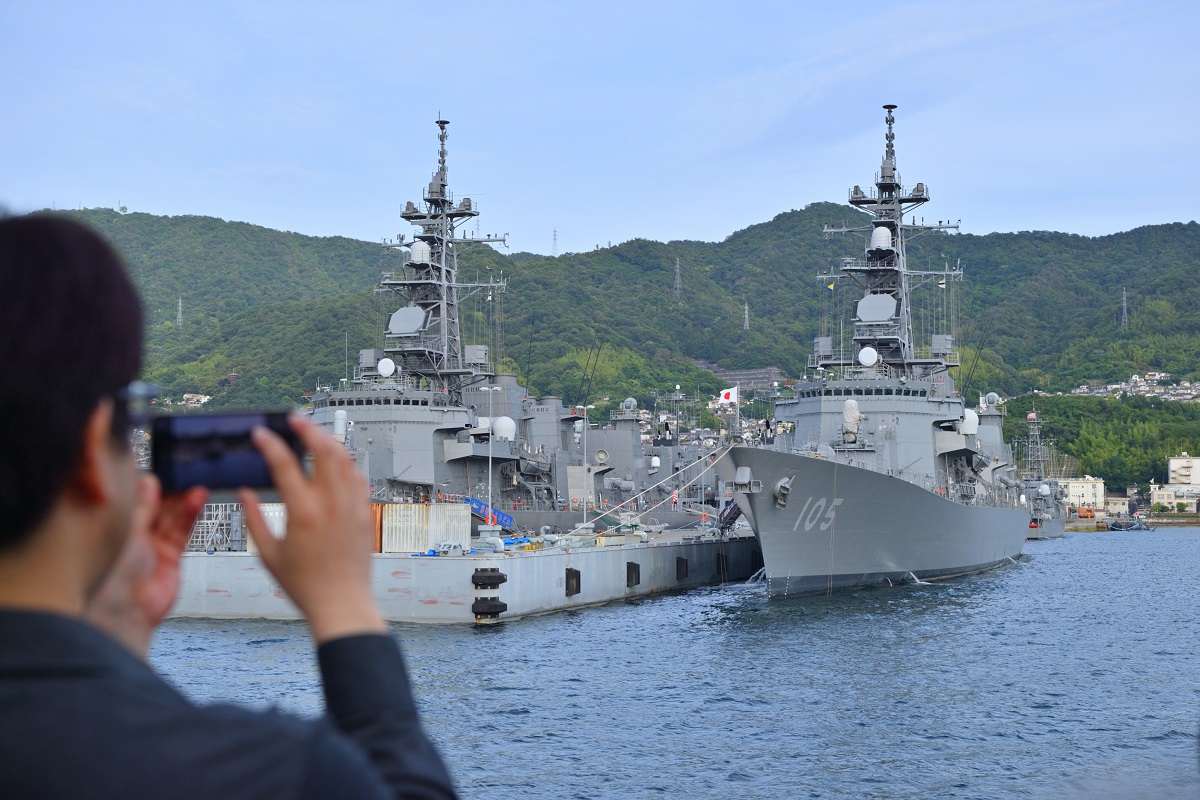
Destroyers at Kure Port
After leaving, we headed west with the view of the Kurushima Kaikyo Bridge on the Shimanami Kaido route in the distance.
We arrived at Mitarai Port on Osaki-Shimojima Island for a one hour stop. Historically, sailboats used the small port to wait for good wind before heading out. The district is still lined with traditional wooden townhouses, and I enjoyed walking through the narrow alleys.
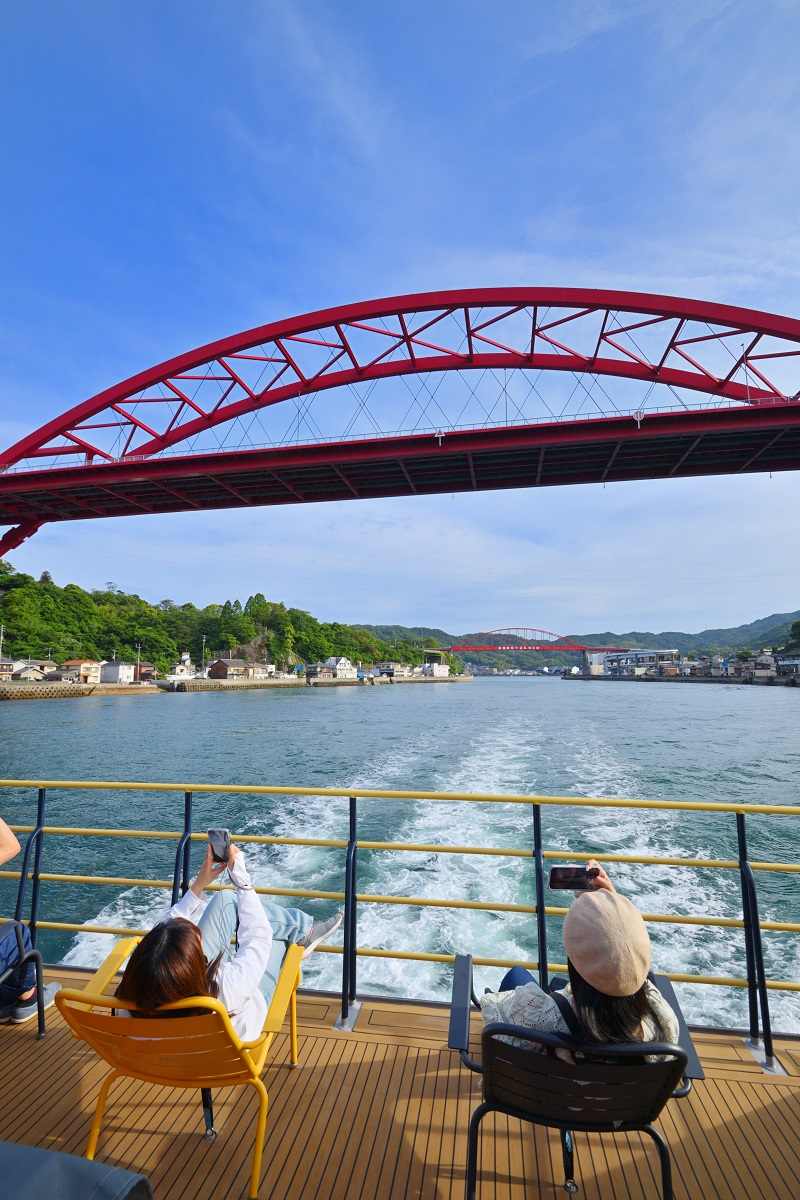
Ondo Ohashi Bridge in the Ondo no Seto strait
While I was there, I met an artist who paints the historical district of Mitarai. He uses a local empty house as an atelier and sells his paintings there. I also talked with the operator of a local guesthouse who moved to the district and renovated a local hospital building to create the lodgings. I thought about how charming places always attract new visitors.
As the sun set, the sky and sea gradually changed colors. After passing through the scenic Ondo no Seto strait, the Sea Spica called at the port of Kure, where passengers aboard could view the warships there. Then, we headed for Hiroshima Port nearby to arrive at 6 p.m. I looked at the Seto Inland Sea once again and was struck by how beautiful it appeared at dusk.
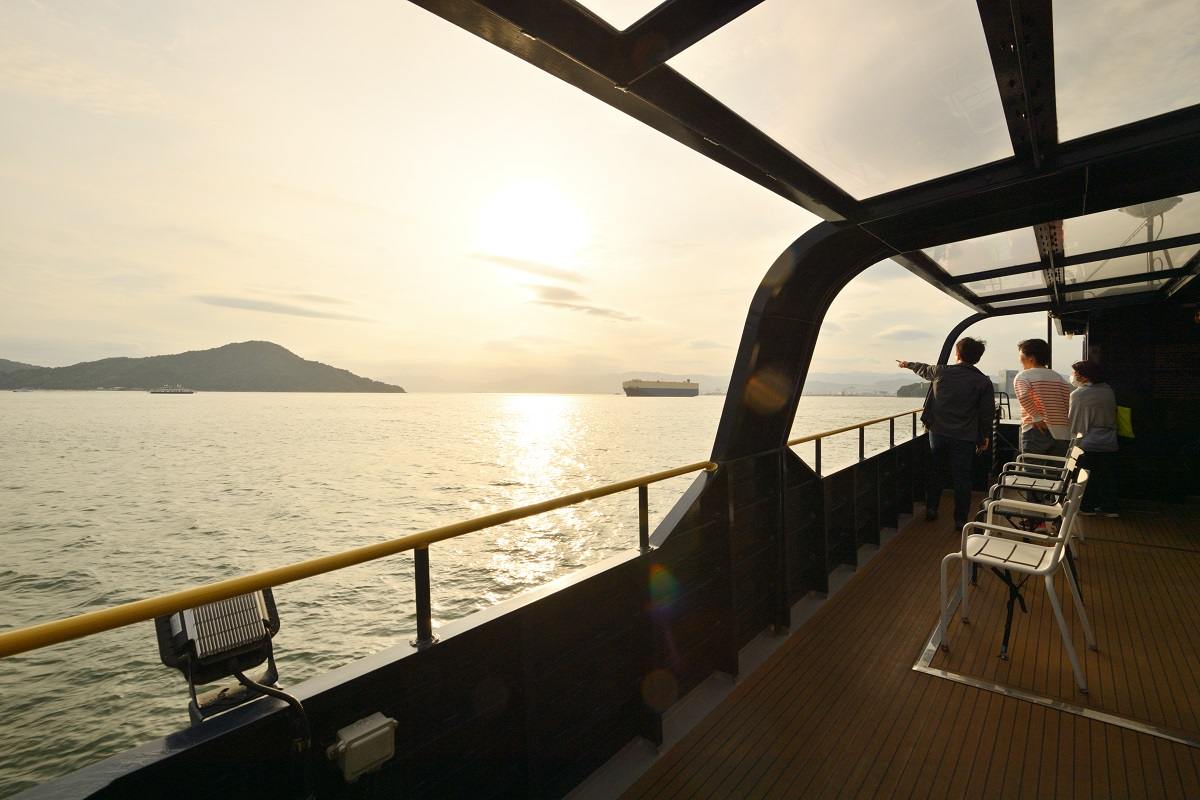
The Sea Spica heads for Hiroshima Port as the sun sets.
The Sea Spica
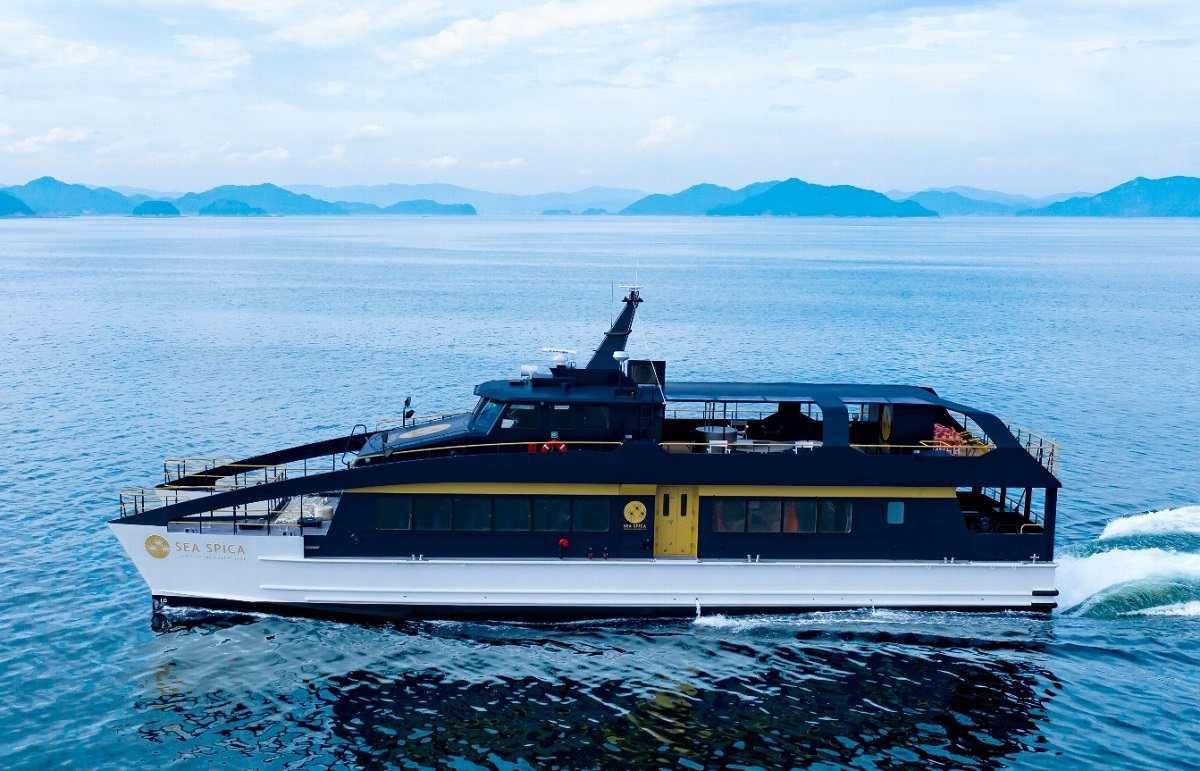
The Sea Spica
The boat’s eastbound route starts at Hiroshima Port, located at the stop of the same name on the Hiroshima Electric Railway. It takes 33 minutes to get there from Hiroshima Station. The starting point of the westbound route, Mihara Port, is a five-minute walk from Mihara Station on the Sanyo Shinkansen Line. The standard fare for both trips costs ¥7,000. Fares cost ¥6,500 during the off-season and ¥7,500 during peak season. Package plans including a lunch set featuring octopus dishes or a ride on the “etSETOra” sightseeing train on the Kure Line are also available.

***
Japan Tourism is presented in collaboration with Ryoko Yomiuri Publication, which publishes Ryoko Yomiuri, a monthly travel magazine. If you are interested in the original Japanese version of this story, click here.
Top Articles in Features
-

Tokyo’s New Record-Breaking Fountain Named ‘Tokyo Aqua Symphony’
-

Sapporo Snow Festival Opens with 210 Snow and Ice Sculptures at 3 Venues in Hokkaido, Features Huge Dogu
-

Tourists Flock to Ice Dome Lodge at Resort in Hokkaido, Japan; Facility Invites Visitors to Sleep on Beds Made of Ice
-

High-Hydration Bread on the Rise, Seeing Increase in Specialty Shops, Recipe Searches
-

Heirs to Kyoto Talent: Craftsman Works to Keep Tradition of ‘Kinran’ Brocade Alive Through Initiatives, New Creations
JN ACCESS RANKING
-

Japan PM Takaichi’s Cabinet Resigns en Masse
-

Japan Institute to Use Domestic Commercial Optical Lattice Clock to Set Japan Standard Time
-

Israeli Ambassador to Japan Speaks about Japan’s Role in the Reconstruction of Gaza
-

Man Infected with Measles Reportedly Dined at Restaurant in Tokyo Station
-

Videos Plagiarized, Reposted with False Subtitles Claiming ‘Ryukyu Belongs to China’; Anti-China False Information Also Posted in Japan


